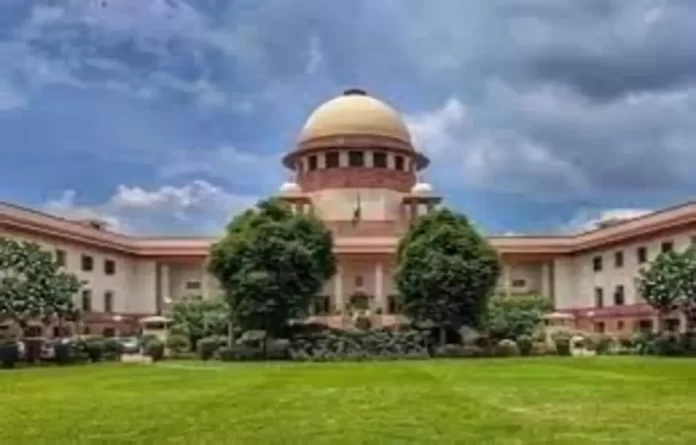As the Supreme Court celebrates 75 years of its inception, a grand event will be held at the Additional Building Complex of the Apex Court on Sunday, which will be inaugurated by Prime Minister Narendra Modi.
As per the schedule, Prime Minister Modi, along with Chief Justice of India DY Chandrachud, will launch citizen-centric information and technology initiatives on the occasion. These include Digital Supreme Court Reports (Digi SCR), Digital Courts 2.0 and new website of the Supreme Court.
The Digital Supreme Court Reports (SCR) will make the Apex Court judgments available to the citizens of the country free of cost in electronic format. All 519 volumes of the Supreme Court reports since 1950, covering 36,308 cases, shall be available in a digital format, bookmarked, user-friendly, and with open access.
Digital Courts 2.0 application is a recent initiative under the e-Courts project to make court records available to the Judges of district courts in an electronic form. This is coupled with the use of artificial intelligence (AI) for transcribing speech to text on a real time basis.
The Prime Minister will also launch the new website of the Supreme Court. The new website will be in bilingual format in English and Hindi and has been redesigned with a user-friendly interface.
The Supreme Court of India was inaugurated in the Parliament Building on January 28, 1950. Back then, there was no separate building for the Apex Court, which functioned from the Parliament Building then.
The original Constitution of 1950 had a Chief Justice of India and seven puisne judges and had left it to Parliament to increase the number.
It is pertinent to note that since the inception, the Parliament has increased the number of judges six times since 1950 to the current strength of 34 in 2019.
The top court of the country saw several technological changes, ranging from litigant-friendly facilities, with the hybrid hearing system being one of the key achievements for listing of cases.
In 2023, the cases have also been streamlined, along with smart and paperless courts.
Last year saw the use of Artificial Intelligence (AI) by the Supreme Court for transcription being recognised in UNESCO’s Global Toolkit on Al and the Rule of Law for the Judiciary.
2024 is all set for further technological changes. Among them will be the establishment of an independent data centre that leverages both public and private cloud services; cutting-edge live-streaming solutions, a tenfold boost in internet speed, and a new Supreme Court website that offers both English and Hindi option, in recognition of the needs of a diverse audience.


